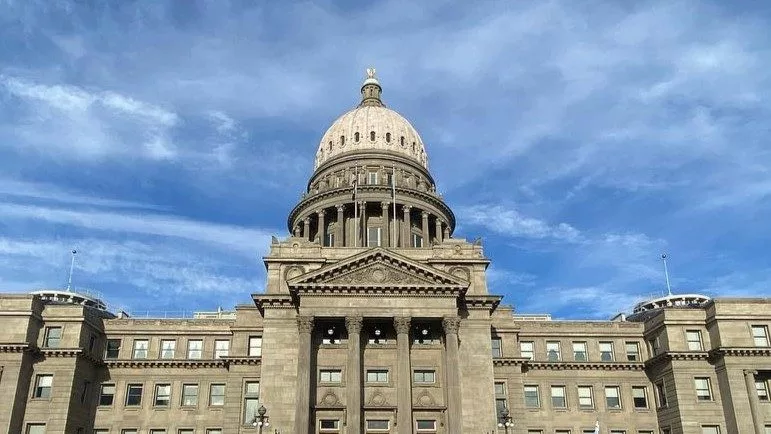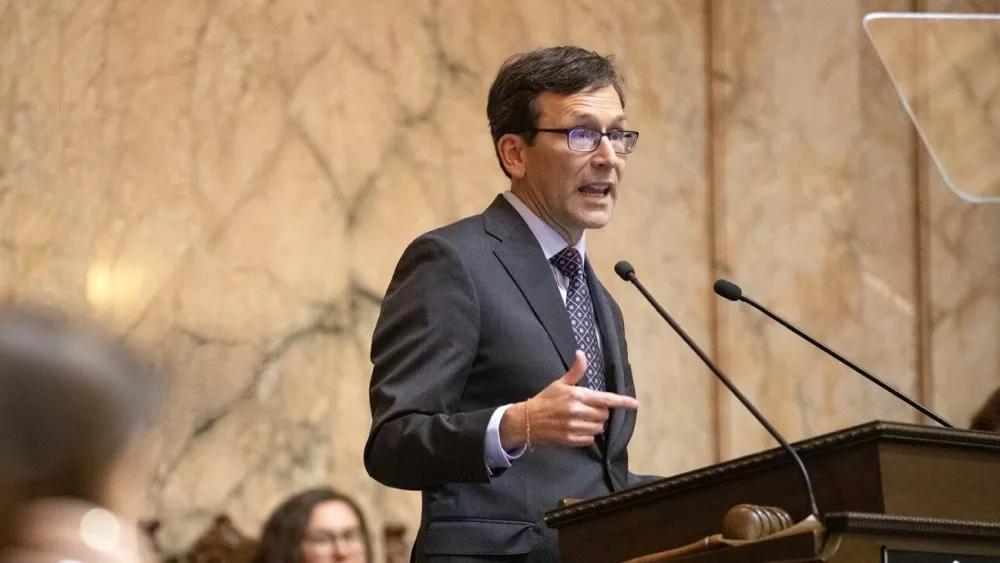OLYMPIA, WA – A new firearms-related law took effect this month in Washington, but the state is still two years away from implementing a controversial law requiring a permit to purchase firearms.
House Bill 2118 went into effect on July 1.
It establishes stricter operational requirements for licensed firearms dealers. The bill aims to enhance gun safety and prevent gun violence by imposing enhanced security measures, record-keeping requirements, and reporting obligations on federal firearms licenses.
Kirk Evans, attorney and president of U.S. LawShield, examined these laws and their potential impacts.
He speculated that some firearms dealers may be waiting to see if litigation could bring an injunction temporarily suspending the requirements of HB 2118.
“Even the big retailers, what are you going to do? Are you going to spend the money on this infrastructure? Are you going to wait and see what happens? You know, are you going to even be able to sell guns when the new law goes into place, and is there going to be an injunction on that one?” Evans wondered.
Dave Workman, editor-in-chief at TheGunMag, said he has not heard of significant fallout since HB 2118 kicked in.
“Costs are passed on to the customer, and they’re not grumbling too loud – yet,” he said. “Frankly, this burdensome law was adopted to put FFLs out of business, just like the 10-day waiting period seems to have hurt weekend gun shows. Such laws miss the point: Evil people do not obey gun laws.”
Evans noted that the permit-to-purchase law, House Bill 1163, which goes into effect on May 1, 2027, is already having an effect.
“Whenever people see a surge in restrictions or a buildup in restrictions, they tend to rush out and get permits or acquire firearms before whatever restrictions or things come online,” Evans told The Center Square. “Literally every single person that wants to go out and acquire a firearm is going to have to go get a purchase permit.”
As recently reported by The Center Square, the first half of 2025 saw a record surge in people seeking concealed carry permits in Washington.
“At the end of June, there were 709,334 Washington residents with an active concealed pistol license,” noted Department of Licensing Communications Consultant Rob Wieman, including a record month-over-month increase of more than 1,400 new concealed carry permits.
When HB 1163 takes effect, anyone seeking to purchase a firearm must undergo a background check through the Washington State Patrol and take a state-approved safety training course.
That will be followed by a second background check and a 10-day waiting period to take possession of the newly purchased firearm.
“So, you know, there’s just no way that this is not going to create a humongous backlog at the state level,” Evans predicted. “And there’s going to be backlogs at the training level with getting enough trainers who can do the certification for the various levels that are going to be required just to get that purchase permit.”
According to Evans, firearms safety training for a concealed carry permit will not be considered the same as training for a permit to purchase.
“Training for the carry permit is going to be different than the certified training for the purchase permit,” he said. “And so even though you may have gone out and taken the class to get your carry permit, they’ve made it clear that the class and the certification [are] actually going to be different and probably not going to qualify you for that purchase permit in the future.”
Evans said he is concerned that the delays and additional costs for the gun buyer could have devastating consequences.
“So, imagine you’re not really a gun person, but suddenly you’re facing a stalker or a domestic abuse situation,” he said. “Now you’re stuck in the backlog because you’ve got a million people running out after the new law passed, and somewhere in the middle of that, you’re facing the stalker that you’re trying to prepare yourself to face. There’s just so many potential areas where this is going to cause problems.”
Kevin Baird is the assistant commander of the Firearms Background Division at the Washington State Patrol.
The Center Square asked about the challenges of implementing HB 1163.
“E2SHB 1163 requires WSP to establish a program to provide certifications for firearms safety training programs that meet the requirements of RCW 9.41.070 (concealed pistol license) and RCW 9.41.1132 (firearm transfers), and to require certified firearms safety programs to apply for recertification every five years,” he said in an email. “The bill’s funding does not begin until July 1, 2026, so at this time we are only able to do very basic planning.”
He continued: “The end goal is to have a process to allow [curricula] submitted to us to be certified as meeting the requirements of the statutes and provide a way to provide proof that training has been taken (or that an exemption is allowed) by the applicant. There is a fiscal note attached to the bill that addresses the anticipated FTEs and costs, which are difficult to provide a definitive answer for at this time.”





